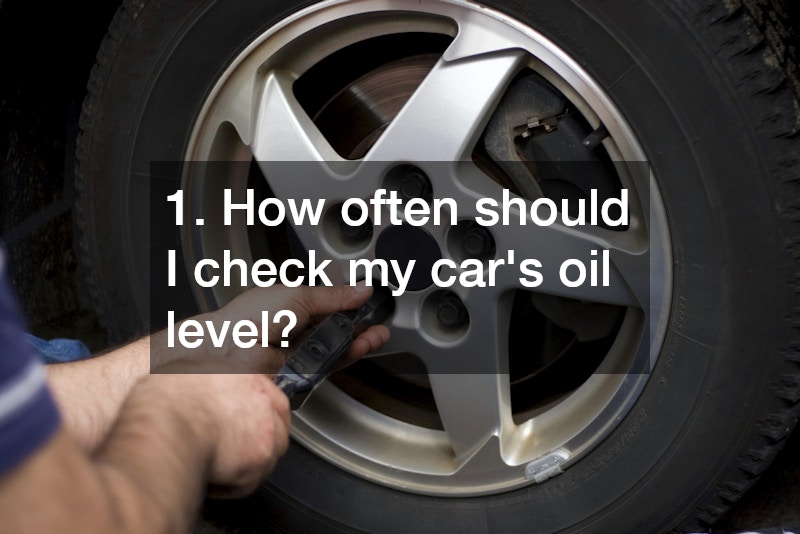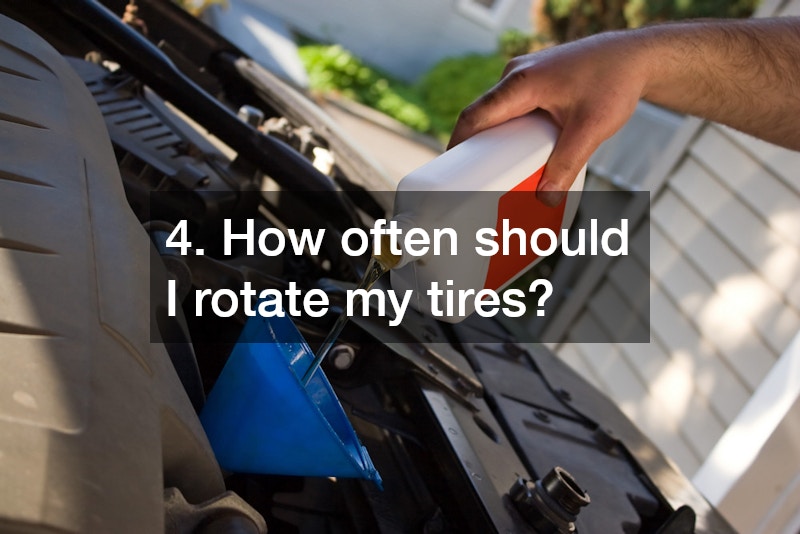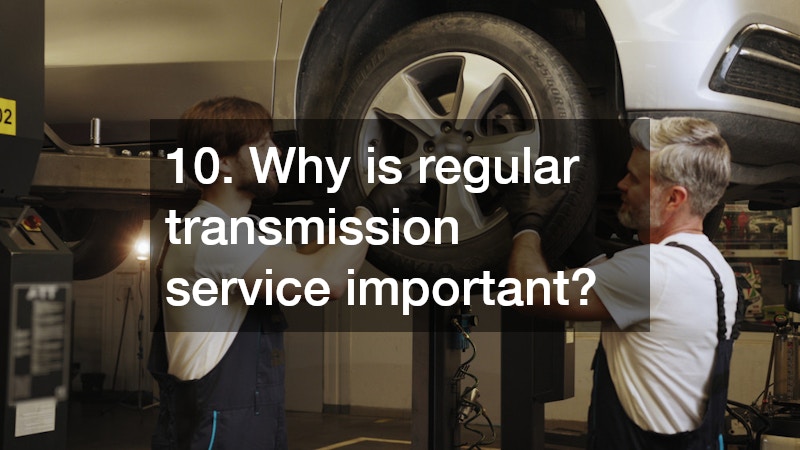In the modern world, our vehicles are more than just a means of transportation; they are integral components of our daily lives. Performing maintenance as per the manufacturer’s recommendations is crucial for ensuring the longevity and performance of your car. Regular maintenance checks help avoid unexpected breakdowns, saving both time and money you might otherwise spend at an auto repair shop. This article delves into essential car maintenance practices recommended by manufacturers to keep your vehicle in peak condition. Understanding and adhering to these guidelines enhances the safety and efficiency of your vehicle, making every journey smooth and trouble-free.
1. How often should I check my car’s oil level?

Checking your car’s oil level is a fundamental aspect of regular automotive maintenance. Most manufacturers recommend checking the oil level at least once a month. This helps ensure that the engine runs smoothly and efficiently without causing unnecessary strain. Keeping tabs on oil levels through frequent checks can prevent engine damage that may otherwise lead to expensive repairs at an auto repair shop.
Low oil levels or dirty oil can cause the engine to wear more quickly, potentially leading to catastrophic failures. Most vehicles have a dipstick, which is an easy and efficient tool to check oil levels. Referencing the manufacturer recommended oil levels ensures the engine is adequately lubricated, preventing damage during operation. This simple task can ultimately save you from costly engine repair or even full engine replacement.
Maintaining your engine’s oil level will maximise performance and fuel efficiency. Clean and sufficient oil contributes to a smooth driving experience and reduces harmful emissions. Consult your owner’s manual or speak with a mechanic during your next truck repair shop visit to understand the specific oil levels recommended for your vehicle. Such diligence in maintaining oil levels according to manufacturer recommendations extends your vehicle’s life span substantially.
2. What is the manufacturer recommended tire pressure?
Tires are a critical component of vehicle safety and performance, making their maintenance essential. Maintaining the manufacturer recommended tire pressure not only enhances safety but also optimizes fuel efficiency and tire lifespan. Most manufacturers provide specific pressure guidelines which are usually found in the owner’s manual or on a sticker inside the driver’s door.
Routinely checking and adjusting tire pressure is an important automotive maintenance task that can prevent uneven tire wear and improve handling. Under-inflated tires create more resistance against the road, leading to decreased fuel efficiency and increased risk of blowouts. Conversely, over-inflated tires can reduce traction and make your ride less comfortable. To keep your tires in optimal condition and avoid frequent visits to an auto repair shop for unexpected tire damage, abide by the recommended pressures.
Investing in a good tire pressure gauge and checking the pressure monthly can prevent potential safety hazards and increase your tires’ longevity. Proper tire pressure enhances your vehicle’s ability to grip the road, further improving your safety while driving. Understanding the manufacturer recommended tire pressure is an excellent preventive measure to prolong the tire’s lifespan and ensure smooth travels.
3. When should I replace my air filters?
Replacing air filters is a critical aspect of car maintenance that supports efficient engine operation and air quality. Most manufacturers recommend replacing the engine air filter every 12,000 to 15,000 miles, or approximately once a year, under normal driving conditions. However, if you drive in dusty or polluted environments, more frequent replacement might be necessary to maintain optimal engine performance.
A clean air filter ensures a proper mix of fuel and air, which is essential for combustion. A clogged or dirty filter can restrict airflow to the engine, leading to decreased performance, reduced fuel efficiency, and emissions problems. If neglected, these issues may necessitate expensive transmission repair or engine tune-ups to address inadequate performance caused by poor air filtration.
Ensuring timely air filter changes based on manufacturer recommended intervals prevents stress on the engine, reducing the likelihood of breakdowns. Many auto repair shops offer quick inspection and replacement services for air filters as part of routine checks. Staying aware of the recommended schedules helps avoid unnecessary expenses while maintaining smooth engine function.
4. How often should I rotate my tires?

Tire rotation is an essential maintenance practice aimed at ensuring even tire wear. Most manufacturers recommend rotating tires every 6,000 to 8,000 miles, or during every oil change for simplicity. This helps in extending the tires’ lifespan and improving vehicle handling, both critical aspects of safe driving.
Rotating tires in the pattern advised by your manufacturer allows each tire to endure equal wear, maintaining balance and traction. This routine maintenance can also reveal other suspension and alignment issues that might go unnoticed until they cause more considerable problems. If these issues arise, you might need to seek out diesel repair services to rectify them.
Regular tire rotation based on manufacturer guidelines helps in achieving maximum performance and safety. Properly rotated tires contribute to a smoother ride and balanced handling. This simple yet effective step, typically offered at auto repair shops as part of broader automotive maintenance packages, enhances fuel efficiency and reduces the chances of needing premature tire replacement.
5. What are the manufacturer recommended intervals for brake inspection?
Brakes are one of the most crucial safety features of any vehicle, demanding regular inspection and maintenance. Manufacturers generally advise having your brakes checked once every 10,000 miles or as part of every scheduled service visit. Keeping up with these suggestions can help ensure responsive braking and prevent failures that could lead to accidents.
During a brake inspection, a qualified mechanic evaluates the thickness of the brake pads and the condition of the rotors. Addressing wear and damage as soon as it is detected keeps your vehicle safe, as neglected brake issues can lead to more extensive damage requiring comprehensive repairs. Many auto repair shops and small engine repairs services include brake checks in their service offerings, making it easy to comply with maintenance schedules.
Regular brake inspections not only guarantee that your vehicle stops effectively under various conditions but also reduce the chance of costly emergency repairs. Keeping a routine based on manufacturer recommendations helps extend your brake system’s life and ensures that your vehicle remains safe to drive. Adhering to these guidelines could save you from potential catastrophes and expensive visits to transmission repair shops to address avoidable failures.
6. How often should I flush my car’s coolant system?
Flushing your car’s coolant system is a vital yet often overlooked maintenance practice. Manufacturers typically recommend flushing the coolant system every 30,000 miles or every three to five years, depending on vehicle make and model. Doing so prevents overheating and engine corrosion, helping cars operate efficiently under varying temperature conditions.
Over time, the coolant can become contaminated with debris and rust, affecting its ability to regulate engine temperature. It’s vital to replace the old coolant with a fresh batch to maintain proper thermal management. A truck repair shop or a licensed mechanic can easily perform this service, ensuring the job adheres to manufacturer specifications.
Regularly flushing the coolant system based on manufacturer recommendations mitigates the risk of overheating, which could lead to severe engine damage requiring costly repair. By sticking to the recommended schedule, you can prevent build-up within the system, maintaining your engine’s integrity and longevity. Engaging in this regular maintenance practice ensures healthier engine operation and improved performance.
7. When should I replace windshield wipers?

Windshield wipers play a crucial role in maintaining visibility during adverse weather conditions, necessitating regular checks and replacements. Manufacturer guidelines suggest replacing wiper blades every six to twelve months to ensure optimal performance. As wipers deteriorate, they may leave streaks or fail to clear the windshield effectively, posing significant safety hazards.
Periodically replacing windshield wipers before they become ineffective is a simple yet vital maintenance task. A local towing company or auto repair shop can quickly inspect your wipers during a routine service appointment and provide replacements if necessary. Keeping wipers in good condition is paramount to ensure clear visibility and safe driving, especially during inclement weather.
By adhering to manufacturer recommendations for wiper replacement, you maintain both safety and stability on the road. Worn-out wipers are more than just an inconvenience; they present genuine risks, particularly in heavy rain or snow. Ensuring consistent replacement mitigates these dangers and improves your vehicle’s overall safety profile.
8. What is the importance of regular battery checks?
Car batteries are the powerhouse behind your vehicle’s startup and electronic systems, underscoring the significance of regular assessments. Manufacturer guidelines generally advise inspecting the battery’s health at every oil change or every 6,000 to 8,000 miles. Regular checks can preempt starting issues and extend the life of the battery.
A strong, reliable battery ensures your vehicle starts efficiently and powers all onboard electronics smoothly. Indicators such as slow engine cranking may suggest battery issues that need immediate attention. Many auto repair shops offer quick battery checks, complementing routine automotive maintenance efforts and reducing the likelihood of sudden failure.
Following manufacturer recommended intervals for battery checks aids in early detection of potential problems, saving you from inconvenient breakdowns or costly replacements. Regular battery maintenance is essential for uninterrupted vehicle operation. When checking your battery, consider investing in jeep accessories that include diagnostic tools for battery health, further enhancing your maintenance capability.
9. How do I maintain my car’s belts and hoses?
Belts and hoses play vital roles in the operation of an array of vehicle components, such as the water pump and power steering. Manufacturer guidelines typically recommend inspecting and replacing belts and hoses every 60,000 miles or as part of a comprehensive maintenance routine. Regular inspection helps detect wear or leaks early, reducing the risk of sudden failure.
Cracks, fraying, or squealing noises may indicate issues with belts, while softness or swelling often suggests hose problems. These components can often be overlooked, yet they cause significant engine problems if not addressed timely. Enlisting the help of an auto repair shop or a car detailing service to examine these parts during maintenance checks can be valuable in detecting and mitigating issues.
Adhering to manufacturer recommended schedules for belt and hose maintenance ensures a smoothly running engine and reliable vehicle operation. Neglecting these essential components can result in catastrophic engine damage, leading to expensive repairs that could involve a car wash service to clean up any residual damage. Regular, proactive checks prevent such disasters while contributing to overall vehicle reliability.
10. Why is regular transmission service important?

The transmission system is responsible for transferring power from the engine to the wheels, making its regular maintenance crucial. Manufacturers generally recommend inspecting and servicing the transmission every 30,000 to 60,000 miles. Regular transmission service helps avert costly failures and enhances vehicle performance.
During a transmission service, old fluid is replaced, and the system is checked for leaks and wear. Consistent maintenance keeps the transmission in top condition, avoiding the substantial expenses associated with full transmission repair. A reputable auto repair shop will conduct comprehensive transmission servicing, aligning with manufacturers’ guidelines to maximize operational efficiency and reliability.
Following manufacturer recommended intervals for transmission maintenance strictly is essential for maintaining smooth gear shifts and prolonging your vehicle’s life. Transmission service, while technically demanding, ensures your car can withstand the stresses of everyday driving. Engaging in this preventive maintenance routine steadily guarantees optimal performance and longevity, minimizing the risk of critical system failures.
Adhering to manufacturer recommended car maintenance practices is fundamental to preserving your vehicle’s performance, safety, and longevity. Regular maintenance routines covering everything from oil checks to transmission servicing prevent minor issues from escalating into significant repairs. This proactive approach alleviates the chance of unexpected and expensive visits to your local auto repair shop.
Embracing a diligent maintenance routine helps in identifying potential issues early, ensuring that any arising problems can be managed effectively. By following the manufacturer recommended guidelines outlined in this article, you ensure your vehicle remains in optimum condition, offering better reliability and performance throughout its lifespan. Ultimately, regular manufacturer recommended car maintenance proves invaluable and truly serves as the best investment in your vehicle’s future.



